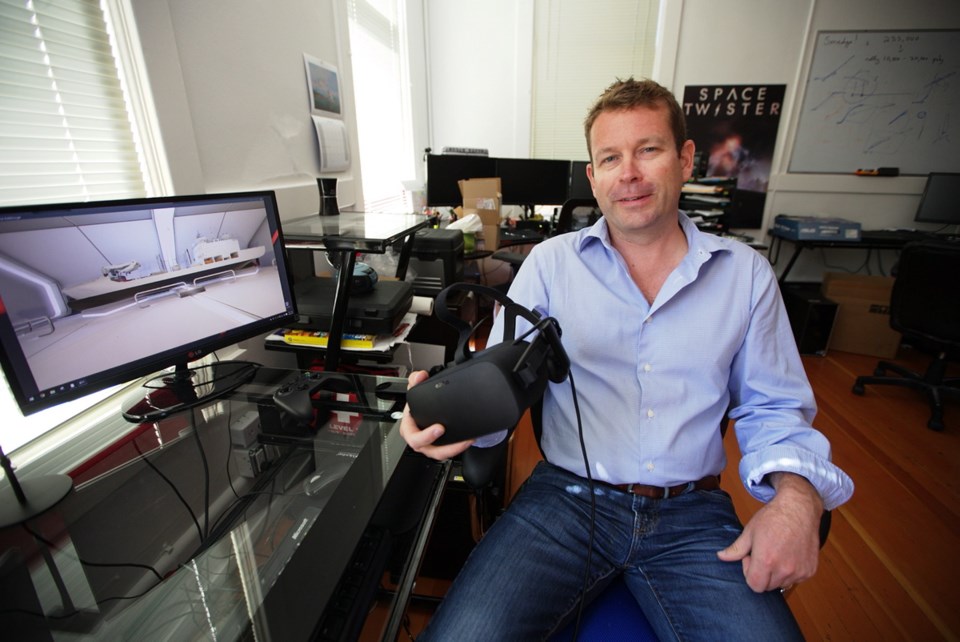A new training tool developed by a Victoria software company will save aerospace companies and government departments money and time when training staff, according to the chief executive in charge of the program.
Scott Dewis, chief executive of Race Rocks 3D, said a virtual reality set-up being developed by the firm will allow students to immerse themselves in worlds that do not yet exist.
That means they can hit the ground running when the equipment does come to life.
The program is being developed to help train crews for a new Royal Canadian Navy ship being built by Chantier Davie Shipyards in Quebec.
Race Rocks won a contract to provide the training systems for the Asterix, a container ship that is being converted into an auxiliary oiler/replenishment ship for the navy.
The software will allow the crew to get familiar with the ship’s layout, its systems and how it functions months before it leaves the shipyard.
The company has developed a brief “touring” virtual reality experience that takes anyone from a virtual office, seemingly on board the ship, onto a helicopter for a realistic aerial tour of the ship as it demonstrates its capabilities at sea.
“The goal is for a sailor who comes on board Asterix to already know the ship,” said Dewis.
Race Rocks is investing heavily in virtual-reality and augmented-reality systems for use in aerospace and defence training.
“Really, it’s all about blended learning,” he said, noting they will offer training systems that will use virtual and augmented reality, e-learning and gaming simulation.
“We want to make learning entertaining, so we pick the technology that lends itself best to that type of learning.”
“We are really excited about where this technology can go. It can reduce the cost and speed up the time it takes to train people,” Dewis said.
The growth area is likely to be aerospace, and Dewis said there is a natural fit with companies like Boeing, which is based in Seattle and has satellite operations in Richmond.
“They see Victoria as an untapped market,” he said, noting it’s up to this area to sell itself to the aerospace giant by showcasing its relatively inexpensive cost of living and superior technical talent.
“There is something there for Victoria — and it’s up to us to figure out how to present ourselves,” Dewis said.



